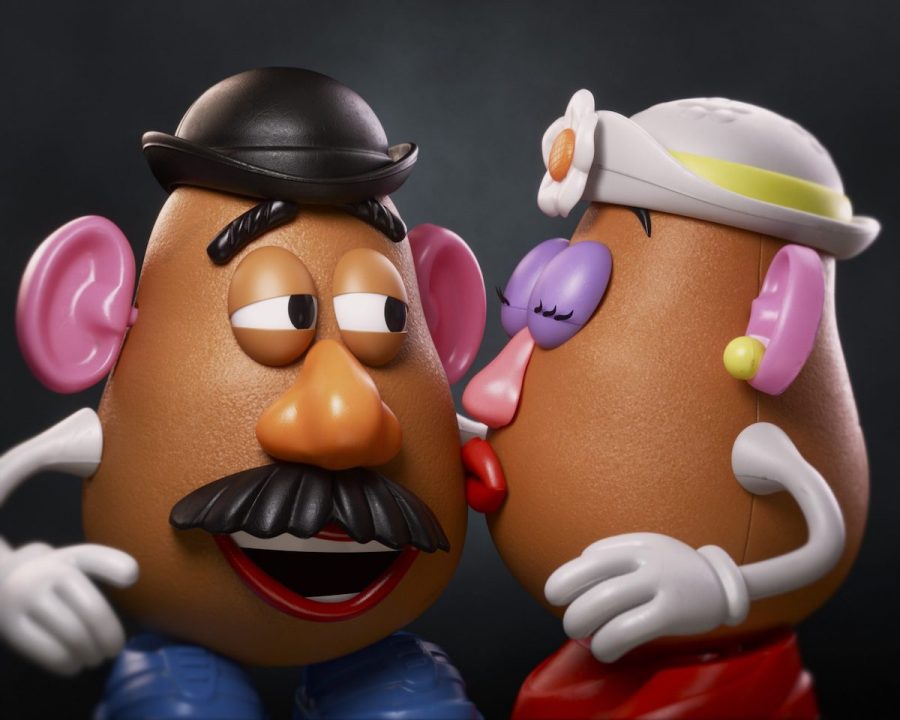Mr. Potato Head officially drops the “Mr.”
The company making the toy aims to be more gender inclusive
Photo by Submitted
Former Mr. and Mrs. Potato Head in Toy Story.
Disney fiends like myself remember the cynical yet lovable Mr. Potato Head from the “Toy Story” franchise all the way back in the late 90s. Most of us were either in diapers or if you were “lucky,” you may have been the one changing the diapers when the first film came out in 1995.
As for myself, I wasn’t alive. Unfortunately, I didn’t have the pleasure of watching the film until I was around nine and I’m happy to report I was successfully potty trained at this point in my life.
The official description of Mr. Potato Head is that he is a hot-headed, wise-cracking, eternal pessimist with a tough plastic exterior that hides who he is on the inside, someone who is incredibly loving and loyal to his friends.
Mr. Potato Head has always been one of my favorite characters in the film, and the more I think about it, the more I realize how similar I am to Mr. Potato Head, if not the exact same person. Anyway, allow me to move on from that existential crisis…
What I am trying to say is, I am a hard-core “Toy Story” fan, so when I heard that Mr. Potato Head would be officially switching to the gender-neutral title of “Potato Head,” it piqued my interest.
This is the random and non-life threatening news I signed up for.
Hasbro Inc., one of the world’s largest toy manufacturers, hopes the switch to the more gender inclusive title of “Potato Head” will promote gender equality.
The move to rebrand the toy is a decision many companies have imitated. For example, Mattel Inc. made a similar decision of rebranding one of their most iconic and popular toys: Barbie.
Barbie has faced extensive criticism in recent years for the disproportionate female figure’s appearance, arguing the toy promotes impossible beauty standards.
Mattel has taken the criticism and has become more body-inclusive as well as becoming more racially-inclusive. In 2017, Mattel made the brand decision to launch a series of dolls with disabilities such as a doll that is in a wheelchair and a doll that is hairless.
“By offering a toy that exists outside of the binary of male and female, Hasbro is helping kids to simply see toys as toys,” Rich Ferraro, a member of the LGBTQ advocacy group GLAAD, said, “which encourages them to be their authentic selves outside of the pressures of traditional gender norms.”
Rebranding decisions, like the ones Hasbro and Mattel are making, are inevitable. Certain language, imagery and cultural elements become outdated and at worst, become controversial. It’s just what happens.
This in itself can be upsetting, especially for those who grew up with the original branding and don’t want a nostalgic toy they loved to be altered.
For those who are concerned, allow me to clarify: the “Potato Head” brand is not changing. Instead, they are allowing kids who play with these toys to choose for themselves what gender their toy is or decide to give it no gender at all.
This is how society grows and transforms — by changing products to become more modern and inclusive which can only be a positive change.
Hinrichs can be reached at [email protected].

Allison Hinrichs is a third-year journalism and multimedia communication student. This is her fourth semester at The Spectator. Allison loves being outdoors and anything that gives her an adrenaline rush. She loves hiking, rock climbing, snowboarding and photography.











